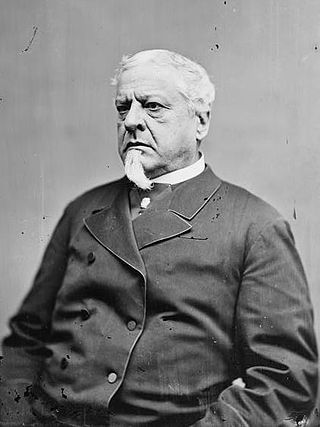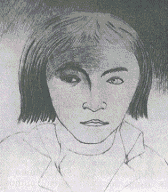Related Research Articles

A privateer is a private person or vessel that engages in maritime warfare under a commission of war. Since robbery under arms was a common aspect of seaborne trade, until the early 19th century all merchant ships carried arms. A sovereign or delegated authority issued commissions, also referred to as a letter of marque, during wartime. The commission empowered the holder to carry on all forms of hostility permissible at sea by the usages of war. This included attacking foreign vessels and taking them as prizes, and taking prize crews as prisoners for exchange. Captured ships were subject to condemnation and sale under prize law, with the proceeds divided by percentage between the privateer's sponsors, shipowners, captains and crew. A percentage share usually went to the issuer of the commission.

Jean Lafitte was a French pirate and privateer who operated in the Gulf of Mexico in the early 19th century. He and his older brother Pierre spelled their last name Laffite, but English language documents of the time used "Lafitte". This has become the common spelling in the United States, including places named after him.

A letter of marque and reprisal was a government license in the Age of Sail that authorized a private person, known as a privateer or corsair, to attack and capture vessels of a nation at war with the issuer. After capturing, the privateers could bring the case of that prize before their own admiralty court for condemnation and transfer of ownership to the privateer. A letter of marque and reprisal would include permission to cross an international border to conduct a reprisal and was authorized by an issuing jurisdiction to conduct reprisal operations outside its borders.

The Battle of New Orleans was fought on January 8, 1815 between the British Army under Major General Sir Edward Pakenham and the United States Army under Brevet Major General Andrew Jackson, roughly 5 miles (8 km) southeast of the French Quarter of New Orleans, in the current suburb of Chalmette, Louisiana.

Edward Livingston was an American jurist and statesman. He was an influential figure in the drafting of the Louisiana Civil Code of 1825, a civil code based largely on the Napoleonic Code. Livingston represented both New York and then Louisiana in Congress and served as the U.S. Secretary of State from 1831 to 1833 and Minister to France from 1833 to 1835 under President Andrew Jackson. He was also the 46th mayor of New York City.

Daniel Todd Patterson was an officer in the United States Navy during the Quasi-War with France, the First Barbary War, and the War of 1812.
Grymes Hill is a 374 feet (114 m) tall hill formed of serpentine rock on Staten Island, New York. It is the second highest natural point on the island and in the five boroughs of New York City. The neighborhood of the same name encompasses an area of 0.894 square miles (2.32 km2) and has a population of 8,263 people. The hill also includes parts of the Silver Lake neighborhood. The area includes part of ZIP Codes 10301 and 10304.

William Henry Hunt was the 29th United States Secretary of the Navy, Minister to the Russian Empire and a judge of the Court of Claims.

Dominique You or Youx was a privateer, soldier, and politician.

Louis-Michel Aury was a French privateer operating in the Gulf of Mexico and the Caribbean during the early 19th century.

Pierre Augustin Charles Bourguignon Derbigny was the sixth Governor of Louisiana. Born in 1769, at Laon, France, the eldest son of Augustin Bourguignon d'Herbigny who was President of the Directoire de l'Aisne and Mayor of Laon, and Louise Angélique Blondela.

The Monongahela and Ohio Steam Boat Company was the second company to engage in steamboat commerce on the rivers west of the Allegheny Mountains. The company was founded in 1813 under the leadership of Elisha Hunt and headquartered in his store which was located close to the boat landing in Brownsville, Pennsylvania. Daniel French designed and built the engines and power trains for both the Despatch, or Dispatch, and the Enterprise. During the Battle of New Orleans in 1815, the shareholders of the Monongahela and Ohio Steam Boat Company sent the Enterprise to aid the American cause. In 1815, the Enterprise demonstrated for the first time by her epic 2,200-mile voyage from New Orleans to Brownsville that steamboat commerce was practical on America's western rivers.
Pierre Lafitte (1770–1821) was a pirate in the Gulf of Mexico and smuggler in the early 19th century. He also ran a blacksmith shop in New Orleans, his legitimate business. Pierre was historically less well known than his younger brother, Jean Lafitte. While not as much of a sailor as Jean, Pierre was the public face of the Lafitte operation, and was known for his wit and charm, in addition to his handling of the sale of smuggled goods.

The steamboat Enterprise demonstrated for the first time by her epic 2,200-mile (3,500 km) voyage from New Orleans to Brownsville, Pennsylvania that steamboat commerce was practical on the Mississippi River and its tributaries.
Vincenzo Gambi was a 19th-century Italian pirate. He was one of the most violent and bloodthirsty men in the Gulf of Mexico during the early 19th century and raided shipping in the gulf for well over a decade before his death. Gambi was one of several pirates associated with Jean Lafitte and later assisted him during the Battle of New Orleans along with Dominique You, Rene Beluche and another fellow Italian-born pirate Louis "Nez Coupé" Chighizola. He is briefly mentioned in the 2007 historical novel Strangely Wonderful: Tale of Count Balashazy by Karen Mercury.

Renato Beluche was an American-born Venezuelan merchant, pirate and privateer active in the early nineteenth century Gulf Coast. Born in New Orleans, Spanish Louisiana to a French smuggler, Beluche went to sea as a pilot's mate in 1802 on board a Spanish Navy warship. By 1805, he had left the navy and become the master of a schooner. Using this ship, Renato turned to piracy and raided Spanish and British merchantmen operating in the gulf.
The following units and commanders of the American armed forces under Andrew Jackson fought at the Battle of New Orleans during War of 1812. The British order of battle is shown separately.

John Randolph Grymes was a New Orleans attorney, member of the Louisiana state legislature, U.S. attorney for Louisiana district, and aide-de-camp to General Andrew Jackson during the Battle of New Orleans.

The Boston Club is a private gentlemen's club in New Orleans, Louisiana, US, founded in 1841 as a place for its members to congregate and partake in the fashionable card game of Boston. It is the oldest remaining social club in the city, after the Elkin, Pelican and Orleans Clubs, closed prior to or due to the Civil War. The clubhouse has been located at 824 Canal Street since 1884, formerly 148 Canal St, on the edge of the Central Business District. It was built in 1844 by James Gallier as a city residence for Dr. William Newton Mercer, a planter in Mississippi and surgeon from the War of 1812. The Club itself was organized in 1841 by thirty leading mercantile and professional men, they were the heads of families and men of substance on the shady side of life, yet full of bonhomie and fond of the card game of Boston from which this club was christened. It epitomized the South's most refined male tastes and attitudes, a member once noted, "Propriety of demeanor and proper courtesy are alone exacted within its portals."
References
- Davis, William C. (2006). The pirates Laffite: the treacherous world of the corsairs of the Gulf. New York: Harcourt Publishing Co., First Harvest edition, 706 pages.
- Head, David (2015). Privateers of the Americas: Spanish American privateering from the United States in the early republic. Athens: University of Georgia Press, 224 pages.
- The Saunders Family History; Chapter 11, The Chinn Family, pp. 61, 69–74. Internet link: http://www.saundersfamilyhistory.com/pages/chapter11.html